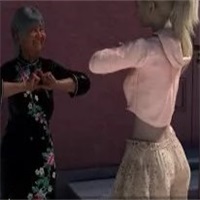In 2004, AbleGamers was founded as a nonprofit organization with a clear mission: to amplify the voices of disabled individuals and drive progress in gaming accessibility. Over the course of two decades, the organization became a staple in the gaming industry, regularly participating in conferences, raising millions through annual charity events, and offering valuable resources to both developers and players. As the accessibility movement gained momentum, so did AbleGamers' reputation—becoming a household name synonymous with inclusive gaming. The organization worked closely with major studios, including Xbox on the Xbox Adaptive Controller, PlayStation on the Access Controller, and even collaborated with Bungie for exclusive merchandise. Beyond partnerships, AbleGamers also served as consultants to developers, educating them on how to effectively implement accessibility features in games.
However, recent revelations have cast a shadow over the legacy of AbleGamers. Multiple reports from former employees and members of the accessibility community paint a troubling picture of leadership misconduct, financial mismanagement, and a board that failed to protect its own staff.
A Mission Undermined
Founded by Mark Barlet, AbleGamers initially set out to foster inclusivity and support for disabled gamers. According to the AbleGamers website, the organization offered services such as peer counseling, community building, and accessibility consulting. Behind the scenes, however, former employees describe a workplace culture that deviated sharply from these ideals.
One former employee, who worked at the organization for about a decade and requested anonymity, shared a detailed account of their experience. They described a pattern of sexist, emotionally abusive, and racially insensitive behavior from Barlet. This included being assigned HR responsibilities without proper qualifications, simply because she was the only woman on staff. Barlet allegedly joked about this situation for weeks, making other employees uncomfortable.
The source also recounted multiple incidents of hostility, including overhearing racist remarks, witnessing inappropriate gestures mocking people with physical disabilities, and enduring sexually explicit comments from Barlet. These behaviors, they claim, were not isolated but part of a consistent pattern that worsened over time, especially when employees spoke out against him.
A Hostile Presence Beyond the Office
Barlet’s alleged misconduct wasn’t limited to the workplace. Former colleagues and accessibility advocates describe his behavior at industry events as dismissive and antagonistic. He reportedly belittled other advocates, suggesting that some only achieved recognition due to personal connections rather than merit. In one instance, he interrupted a presentation by shouting, “Shut up, shut up, you don’t know what you’re talking about.”
Another advocate recalled being told by Barlet, “You are a drop in the pond of accessibility. And I own the pond.” Others reported being pressured to hand over intellectual property, with Barlet allegedly threatening to sabotage their work through his industry connections.
Financial Irregularities and Wasteful Spending
Beyond workplace toxicity, concerns over financial mismanagement surfaced among former employees. Allegations include questionable spending decisions, such as first-class travel for leadership, extended hotel stays unrelated to events, and unnecessary purchases like a Tesla charger installed at headquarters—used only by Barlet.
One former employee noted that during the fourth quarter of 2023, senior staff began expressing concerns over the organization’s financial health. Despite budget constraints, funds were reportedly spent on non-essential items, including an unused van purchased during the pandemic. Additionally, salary discrepancies raised red flags, with some employees earning more for less work, leading to internal disputes and frustration.
Board Inaction and Leadership Failures
Despite internal warnings and the hiring of a Chief Financial Officer to address financial concerns, the board reportedly failed to take decisive action. Employees claimed Barlet maintained tight control over communication with the board, leaving staff unable to raise concerns directly. When an investigation was finally ordered through ADP, the findings reportedly recommended Barlet’s immediate termination. However, sources claim the board ignored the report.
EEOC complaints were filed in May 2024, citing harassment, discrimination, and lack of protection from leadership. An internal investigation followed, but it was criticized for being slow and conducted by a law firm with existing ties to AbleGamers. Barlet eventually stepped down in September 2024, but not before being given severance, which caused further discontent among employees.
Following his departure, several employees who participated in the investigation were reportedly terminated, leading to accusations of retaliation. Former COO Steven Spohn allegedly reached out to ex-employees, urging them not to speak with the press, citing concerns about the charity’s reputation.
Barlet's Response
In response to the allegations, Barlet stated that an independent investigation cleared him of claims of harassment and abuse. He attributed the investigation to pressure from the board to reduce staff. Regarding financial decisions, he defended first-class travel as permitted under a board-approved policy and described meals and hotel stays as necessary for donor relations.
However, Barlet did not provide documentation to support his claims. When asked to share the travel policy or other relevant records, he declined unless the conversation was taken off the record. Former employees and financial insiders dispute his version of events, describing a pattern of financial irresponsibility and favoritism.
The Fallout
For many in the disabled gaming community, AbleGamers once represented hope and progress. But for those who worked closely with Barlet, the experience was deeply damaging. One former employee expressed how the toxic environment destroyed what had been a dream job.
“It definitely crushed me,” they said. “I cried a lot. I cried a lot to my family, friends, and therapist because that was my dream job. \[Barlet\] just burned it to the ground.”















